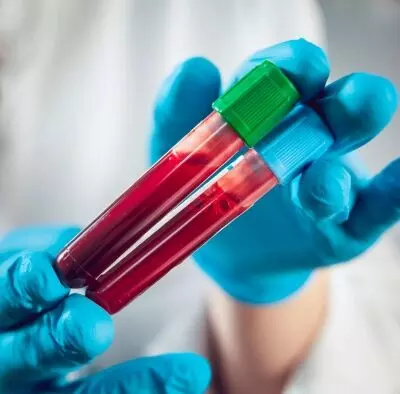
Study finds Covid's link to blood clotting enzymes
text_fieldsLondon: A team of scientists has identified how and why some Covid-19 patients develop life-threatening blood clots.These findings could lead to targeted therapies that prevent such clots happening in future, the BBC report said.
The study published in the Journal of Thrombosis and Haemostasis, by researchers at the Royal College of Surgeons in Ireland (RCSI) found the balance between a molecule that causes clotting called the von Willebrand Factor (VWF) and its regulator, ADAMTS13, which is severely disrupted in Covid patients who had elevated levels of the VWF protein.
The ADAMTS13 gene provides instructions for making an enzyme that is involved in regulating blood clotting, while VWF is a large multimeric glycoprotein in plasma. Deficiency or dysfunction of VWF can lead to either bleeding or thrombosis.
"Our research helps provide insights into the mechanisms that cause severe blood clots in patients with Covid-19, which is critical in developing more effective treatments," said Dr Jamie O'Sullivan, a research lecturer at the RCSI.
She said more research needed to be done to determine whether targets aimed at correcting the levels of ADAMTS 13 and VWF can lead to successful interventions.
"It is important that we continue to develop therapies for patients with Covid-19," O'Sullivan said.
"Vaccines will continue to be unavailable to many people throughout the world and it is important that we provide effective treatments to them and to those with breakthrough infections," she added.
For the study, the team analysed samples from Covid-19 patients in intensive care in the Beaumont Hospital in Dublin.























